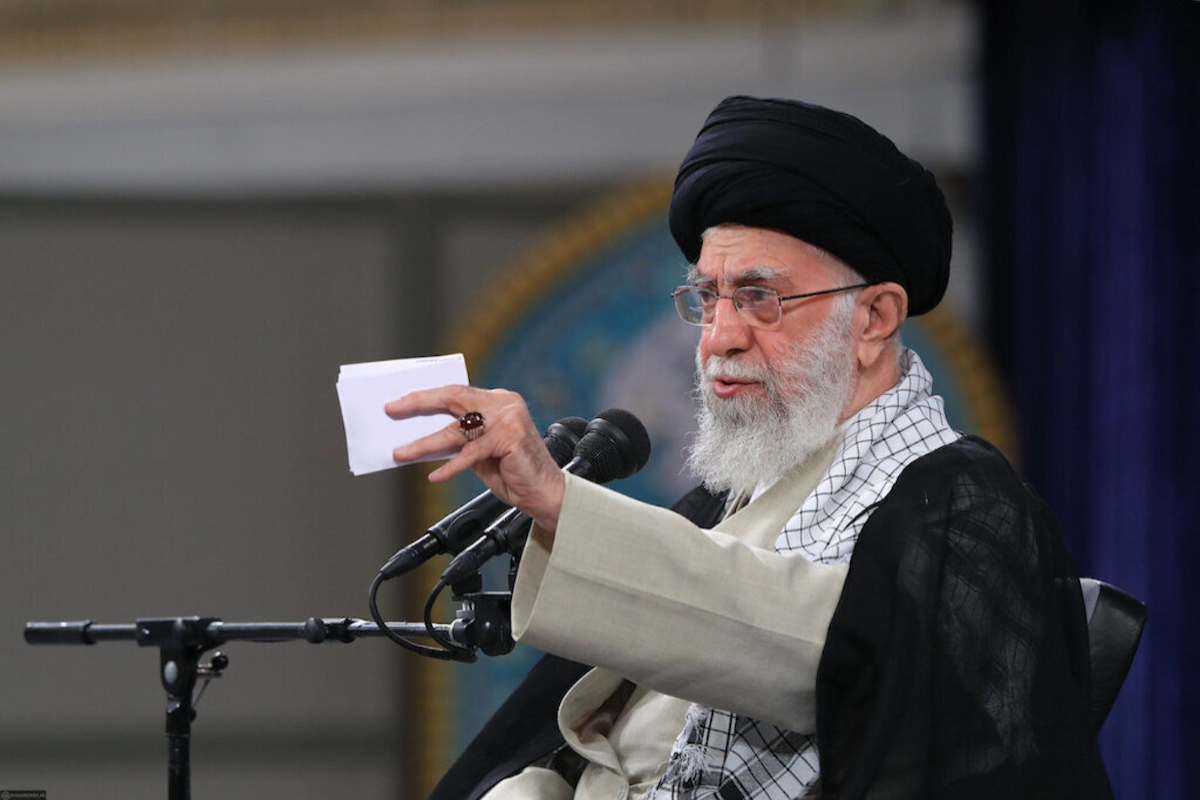- Ayatollah Ali Khamenei met with Basij members in Tehran on Saturday.
- Amnesty International says Basij have been told to “mercilessly confront” demonstrators.
- At least 21 of those arrested are eligible for the death penalty, he told TV on Thursday.
The Basij paramilitary group in the country has received accolades from the government’s Supreme Leader for its part in the violent crackdown on anti-regime protesters.
Ayatollah Ali Khamenei met with Basij members in Tehran on Saturday, denouncing the widespread protest movement as “rioters” and “thugs” supported by foreign powers while praising “innocent” Basij soldiers for defending the country.
An arm of Iran’s Revolutionary Guard called the Basij has been sent to the streets as protests have grown since September.
The death of Mahsa Amini, 22, while in the morality police’s care in Iran served as the first catalyst for the protest movement.
The Basij have been told to “mercilessly confront” demonstrators, according to Amnesty International.
“When facing the enemy on the field of battle the Basij has always shown itself to be courageous, not afraid of the enemy,” the Supreme Leader said Saturday.
“You saw in the most recent events, our innocent and oppressed Basijis became the targets of oppression so that they wouldn’t allow the nation to become the targets of rioters and thugs and those on the [enemy] payroll, whether wittingly or unwittingly. They gave of themselves to free others,” Khamenei said.
Hamenei’s remarks follow Volker Turk’s warning that Iran is experiencing a “full-fledged human rights crisis” as a result of the crackdown on anti-regime dissidents.
During a special meeting of the UN Human Rights Council on Thursday, Turk urged for “independent, impartial, and transparent investigative processes” into human rights abuses in Iran.
In Geneva, he informed the 47-member nations council that security personnel had allegedly used fatal force against unarmed protesters and onlookers who posed “no threat” in response to demonstrations.
Turk claims that more than 14,000 individuals, including children, had been detained in relation to the protests. At least 21 of them, he claimed, are currently eligible for the death penalty, and six have already been given death sentences.
According to the semi-official News Agency, two well-known Iranian actors, Hengameh Ghaziani and Katayoun Riahi, who were detained on separate occasions for openly supporting the nationwide rallies, are among those detained.
Amini’s murder, which was purportedly caused by her failing to properly wear her headscarf, has ignited a wave of antigovernmental demonstrations across the Islamic Republic.
[embedpost slug=”conflicts-follows-demonstrations-at-the-grave-of-mahsa-amini-in-iran/”]
Since then, authorities have launched a brutal crackdown on protesters; there have been claims of forced detentions and physical violence directed towards the nation’s Kurdish minority. In a recent investigation, hidden evidence revealed that since the start of the unrest, sexual abuse had been committed against demonstrators in Iran’s jail facilities, including boys.
According to Turk, the unprecedented nationwide protest has spread to 140 universities and more than 150 cities across Iran’s 31 provinces.
Iranian security forces’ use of violence against protestors has strained relations with Western leaders on a diplomatic level.
In response to US Secretary of State Antony Blinken’s statement that he was “greatly worried that Iranian authorities are reportedly escalating violence against protesters,” the White House on Wednesday announced its most recent round of penalties on three officials in Iran’s Kurdish region.
Ali Bagheri Kani, the deputy foreign minister of Iran, claimed that foreign governments were meddling in Iranian internal issues and fabricating “fallacious narratives” in an interview with the Indian channel on Thursday.
[embedpost slug=”iranian-demonstrators-burns-ayatollah-khomeinis-residence-on-fire-watch/”]





















